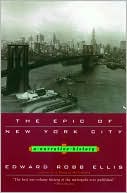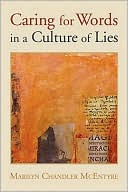A Word on Civil Religion
What is “civil religion”? Is it good to have a strong sense of civil religion inside a state? Are there any downsides to a robust civil religion?
“Civil Religion” is not so much a specific “religion” (e.g., Christianity or Islam) as a nation's universal expression of ideals and moral convictions tied to patriotism. The phrase was coined by the French philosopher Jean-Jacques Rousseau in his treatise The Social Contract. He wrote,
Now, it matters very much to the community that each citizen should have a religion…There is therefore a purely civil profession of faith of which the Sovereign should fix the articles, not exactly as religious dogmas, but as social sentiments without which a man cannot be a good citizen or a faithful subject…Now that there is and can be no longer an exclusive national religion, tolerance should be given to all religions that tolerate others, so long as their dogmas contain nothing contrary to the duties of citizenship. But whoever dares to say: Outside the Church is no salvation, ought to be driven from the State, unless the State is the Church, and the prince the pontiff.Rousseau believed the civil religion should be composed of the belief in an “intelligent and beneficent Deity,” life after death, “the happiness of the just and the punishment of the wicked,” and the sanctity of the law and the Social Contract. Further, intolerance of diverse faiths was forbidden unless that faith preached that salvation was found in Christ alone. Thus, Civil Religion was tolerant of all faiths except Christianity.
Generations later Marx would sum up Rousseau's Civil Religion with the phrase, "Religion is the opiate of the masses." Marx understood that this Civil Religion would mold the people into obedient citizens of the state.
Christopher Manion in his essay "St. John F. Kennedy" observes,
His [Rousseau's] Social Contract advocated absolute rule by a sovereign whose adviser, that 'mortal god' the legislateur, would interpret the 'General Will,' a mythical entity known only to him, and a proposition decidedly opposed to the natural law...Rousseau would lament that 'man is born free, but everywhere he is in chains.' For Rousseau, rebelling against religion and tradition were part and parcel of the preambles to the true social contract – so that man could be totally subjected to the 'General Will,' which was whatever the government said it was...Those who objected 'must be forced to be free,' the earmark of every ideological tyranny since. Auguste Comte, the founder of sociology, adopted a most extreme version of this totalitarian symbolism, reorganizing the entire calendar and issuing a new roster of secular saints more conducive to modernity.Rousseau's treatise for totalitarian democracy would inspire the French Revolution and the subsequent Reign of Terror that executed thousands of innocent French citizens. Revolutionaries soon established a Civil Religion, attempting to de-Christianize France by replacing the Catholic religion with a Cult of Reason (later the deistic Cult of the Supreme Being), converting churches into warehouses, slaughtering priests, and destroying crosses. Even the calendar was transformed, abolishing the Christian Sabbath and declaring 1792 "year one"
In his book How Should We Then Live? Francis Schaeffer writes, "They proclaimed the goddess of Reason in Notre-Dame Cathedral in Paris and in other churches in France, including Chartres. In Paris, the goddess was personified by an actress, Demoiselle Candeille, carried shoulder-high into the cathedral by men dressed in Roman costumes."
Jump ahead to 1967 America. Robert Bellah coins the term "American Civil Religion." Had Rousseau's Civil Religion eventually found its way to America? This Civil Religion was much more subtle than that introduced in France. Historians point to its appearance in the 1950's as a direct response to the atheism of Communism. This Civil Religion gave Americans a distinct identity and sense of unity. President Eisenhower insisted, “Our government makes no sense unless it is founded on a deeply felt religious faith – and I don’t care what it is!” American Civil Religion culminated in the creation of a National Day of Prayer in 1952, the phrase “under God” which was added to the Pledge of Allegiance in 1954, congress’ injunction in 1955 that all currency bear the words “In God We Trust,” and in 1956 the acknowledgement of that phrase as the official motto of the United States.
However, this Civil Religion of the 1950's could be seen as an outworking of Nationalism rather than true Christian faith. The flippant words of Eisenhower (that he doesn’t care what religion you choose) can be dangerous. Note that Eisenhower wasn't talking about one's personal faith, but about which religion should inform government legislation, which religion was going to unite the nation against the threat of Communism. According to The Making of the West, Nationalism teaches that "all peoples derive their identities from their nations, which are defined by common language, shared cultural traditions, and sometimes religion." Yet, Paul tells us in Galatians 3:28, “There is neither Jew nor Greek, slave nor free, male nor female, for you are all one in Christ.” We find our identity not in our nation, but in Christ. Of course this does not mean that a celebration of one’s culture is immoral or that a group of refugees cannot establish a nation for themselves (as the Jewish people did with the State of Israel), but such sentiments should not culminate in a worship of that nation (as seen in Rome, the French Revolution, and Nazi Germany). In that light, nationalism's Civil Religion becomes a false religion.
In the name of tolerance, Civil Religion rejects acknowledgment of the Christian God as the head of one’s nation, preferring instead to invoke a non-specific god at political events, public prayers, and speeches. Civil Religion is a blind religion that sees no theological difference between the Christian, the Muslim, the Buddhist, the Hindu, or even the Atheist. In this sense, Civil Religion is directly opposed to Christianity. This was the Civil Religion that took root in 1950's America. Thus, the atheist really shouldn't make such a commotion about the word "god" that appears in the Pledge of Allegiance. If it is a reference to the god of America's Civil Religion, then it means nothing.
The words of G.K. Chesterton are apt, "Once abolish the God, and the government becomes the God." This was Rousseau's purpose with Civil Religion. Before we can celebrate the fact that God is still invoked on our money, we must reestablish who this God is. We must ask ourselves: in what god does our nation trust? Our nation may sing "God Bless America," but unless that nation acknowledges the God of the Christian faith and follows God’s absolute moral standards and the teachings of Scripture to inform its moral laws, God will not bless that nation. Such references to God are as vacuous as the altar the Athenians erected to the Unknown God. Rather, like Paul, we must proclaim the one true God to our nation.
Posted by Nicole Bianchi at 9:59 PM
|
![]()

.jpg)



 This is life seen through the eyes of a writer. A blog that critically examines literature, music, and film. NB, initials which coincidently coinside with the Latin words "nota bene" (mark well), belong to the blog poster, a bibliophile who likes to haunt libraries and book stores, talk about all things bookish, and ramble at any length on things regarding literature. Many of the articles posted here were written as essays for high school and college.
This is life seen through the eyes of a writer. A blog that critically examines literature, music, and film. NB, initials which coincidently coinside with the Latin words "nota bene" (mark well), belong to the blog poster, a bibliophile who likes to haunt libraries and book stores, talk about all things bookish, and ramble at any length on things regarding literature. Many of the articles posted here were written as essays for high school and college.





